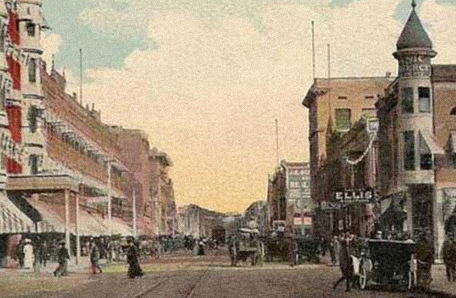The convention was organized by a group calling themselves the Anti-Chinese League, and was attended by hundreds of white residents from across the state. The main purpose of the convention was to promote the exclusion of Chinese immigrants from Idaho, and to advocate for their expulsion from the state. The organizers of the convention argued that the Chinese were a menace to the social and economic well-being of the white population, and that they were responsible for a range of social ills, including crime and disease.
One of the main speakers at the convention was a man named William J. McConnell, who was a prominent politician and businessman in the state. McConnell gave a speech in which he blamed the Chinese for a wide range of problems in the state, including the decline of the mining industry and the rise of crime. He argued that the Chinese were taking jobs away from white workers and depressing wages, and that they were also bringing dangerous diseases to the state.
The convention also produced a set of resolutions calling for the exclusion and expulsion of the Chinese from Idaho. These resolutions argued that the Chinese were a “degraded and inferior race” that was incompatible with the white population of the state. They called for the repeal of all laws allowing Chinese immigration, and for the deportation of all Chinese immigrants already living in the state.
The anti-Chinese sentiment that fueled the convention was not unique to Idaho. Across the western United States, white residents were organizing to exclude and expel Chinese immigrants, in what came to be known as the “anti-Chinese movement.” This movement was driven by a combination of racism, economic competition, and fear of cultural difference. It culminated in the passage of the Chinese Exclusion Act of 1882, which banned Chinese immigration to the United States for the next several decades.
The anti-Chinese convention in Boise was a significant moment in this larger movement, and reflected the deep-seated racism and xenophobia that characterized the era. It also had profound consequences for the Chinese immigrants who lived in Idaho, many of whom faced violence and discrimination in the years that followed. Today, the convention stands as a reminder of the perils of scapegoating and xenophobia, and a call to work towards a more just and inclusive society.
Idaho
Idaho Anti-Chinese Convention

In February of 1886, a group of white residents in Idaho organized an anti-Chinese convention in the town of Boise. At the time, the Chinese population in Idaho was growing, as Chinese immigrants came to the region to work on the railroads and in the mines. This growth, however, was met with hostility by many white residents, who saw the Chinese as a threat to their economic and social status.













You must be logged in to post a comment Login